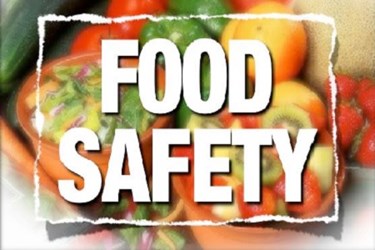FDA And FSIS Officials Chime In On Food-Safety Issues
By Melissa Lind, contributing writer

Officials from both the Food and Drug Administration and Food Safety and Inspection Service expressed optimism about FSMA’s progress at the recent National Food Policy Conference.
Two top FDA and Food Safety and Inspection Service (FSIS) officials met with food industry and policy experts in a question and answer session moderated by the Agriculture and Trade Editor of Politico, Jason Huffman, at the 2015 National Food Policy Conference in Washington D.C. Both officials expressed optimism about changes brought about by the Food Safety Modernization Act (FSMA). The discussion covered a number of food-safety issues from food contamination issues to the impact of trade agreements.
FSMA Status Update
The session started off with an update on the status of FSMA implementation. Michael Taylor, Deputy Commissioner for Foods at the FDA, indicates that all FSMA provisions will be finalized within the year, but the FDA is still falling short of funding required for implementation. Taylor also noted that training is a big issue with a need for a shift in both ideology and technical knowledge for inspectors and agency personnel. FSIS also lacks adequate funding for its portion of the inspection process.
Related: FSMA’s Risk Assessment Best Practices & Implementing Preventive Controls
Import Verification
Taylor stated that the new import verification system may be the biggest improvement for coming changes ushered in by FSMA, but funding for that program was also a challenge. He stresses the importance of insuring that imported food has the same safety standards as domestic products. The first discussion point came regarding the effect that new trade agreements may have on FSMA imports. The Trans-Pacific Partnership and the Transatlantic Trade and Investment Partnership may increase the number of imports, which has already grown from 200,000 in the 1990’s to an estimated 14 million.
Taylor expresses hope that the planned importer verification program would improve coverage by requiring physical inspections for foreign food suppliers. However, he added that the FDA wasn’t a "trade agency” and that funding resources were still needed.
Salmonella Contamination
Conference attendees questioned Brian Ronholm, Deputy Under Secretary at FSIS, about Salmonella not being classified as a food adulterant — unlike E. coli found in raw hamburger, Salmonella has not been classified as an adulterant. The reason for this: under normal cooking conditions of 165 degrees where chicken is considered to be “cooked”, Salmonella would be destroyed. The same cannot be said for hamburger — which can be served multiple ways as rare, medium, and well done — all of which are considered “normal” and E. coli will not be destroyed until the temperature reaches the well-done state and could reasonably not be “cooked-out of” beef. Patricia Buck, Co-founder of the Center for Foodborne Illness countered by stating that some strains of antibiotic-resistant Salmonella are not killed until temperatures reach near 180 degrees, considerably higher than recommended temperatures.
Ronholm acknowledges that Salmonella continues to be a major concern for FSIS and that the agency had not yet achieved the amount of control hoped for, even after the issuance of the Salmonella Action Plan in 2013.
Antibiotic Resistant Bacteria
The discussion about antibiotic resistant bacteria was a continuation of an earlier theme in which Taylor stated that by the end of 2016, all references to “growth and prevention purposes” would be removed from labeling of antibiotics. This would effectively require that use of the drugs on animals for food would have to be under the supervision of a veterinarian, emphasizing that judicious use of antibiotics is necessary and helpful in many cases. Taylor acknowledged that this was only one step in getting the industry to change antibiotic use practices but that the labeling change may initiate quick response.
